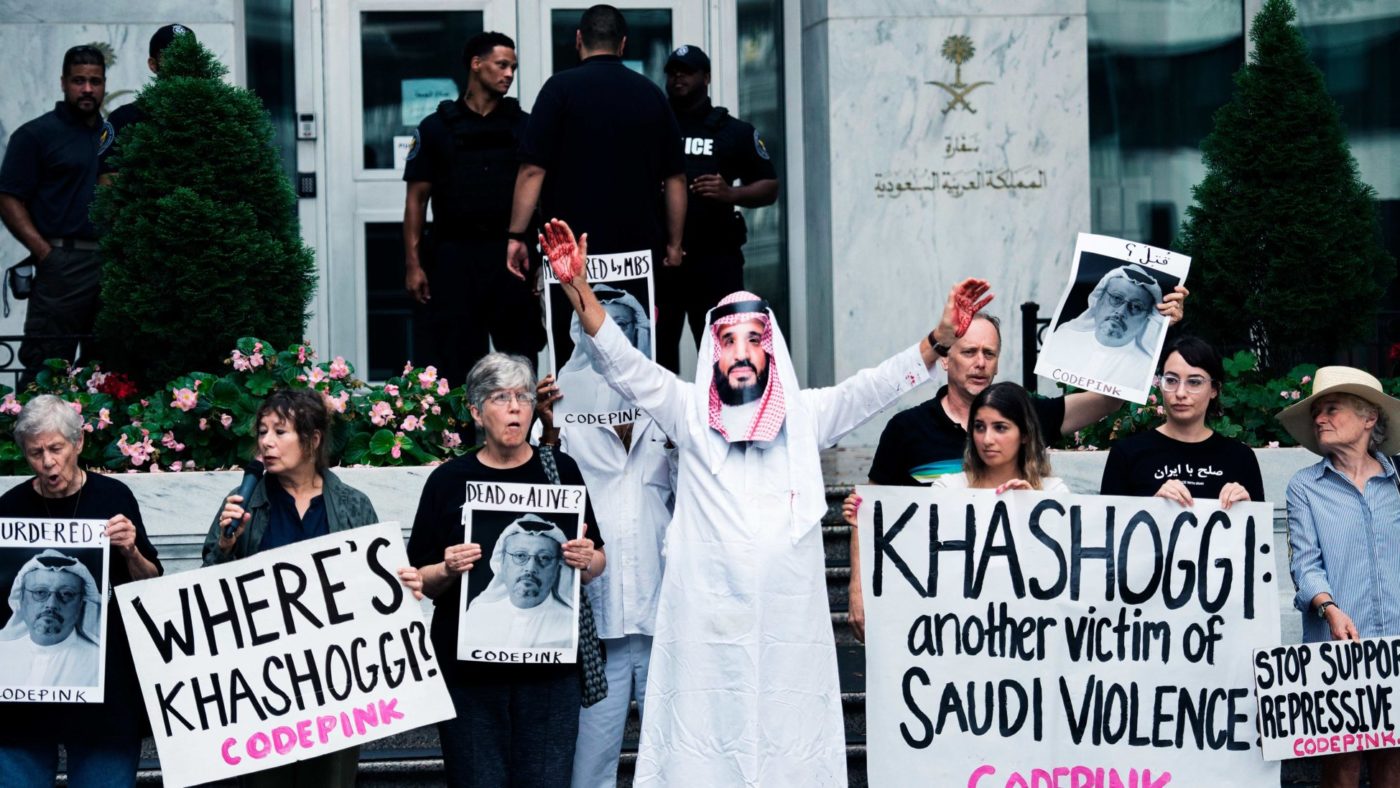The disappearance of Jamal Khashoggi, the Saudi writer who vanished into his country’s Istanbul consulate two weeks ago, provoke an immediate and sustained reaction.
In the early days of this unfolding drama the response in the West was largely indifference to a complicated-sounding story in a part of the world most know little about.
But both the dramatic nature of what had apparently befallen Khashoggi, and the vocal protestations of his supporters have given the story of his disappearance a different quality.
The Washington Post, the newspaper for which Khashoggi wrote, has kept up the pressure with a series of articles and journalists the world over saw the alleged murder of a newspaper columnist as an attack on them all.
The lurid qualities of the reports, often citing unnamed Turkish officials, added vividness to an already compelling story.
It is now alleged that Khashoggi was murdered by a team of Saudis flown in for that express purpose, who left rapidly after their job was completed. Among their luggage, Turkish sources claim, were bone saws to dismember the victim’s body.
Middle East Eye, a media outlet with links to Qatar (a state, it’s worth remembering, that opposes the Saudis) – published a report which suggested Khashoggi’s murder and mutilation took seven minutes, while the men involved listened to music, earphones in.
The barbarism of the alleged murder is not unprecedented, but it is certainly jarring. If what is alleged is true, it can only defuse the optimism of some in the West who thought the Kingdom was turning over a new leaf thanks to the dynamic leadership of 33-year-old Crown Prince Mohammed bin Salman.
Republican Senator Lindsay Graham, a long-time supporter of the Saudis, not only proclaimed himself “personally offended” by the situation but said he would like to “sanction the hell” out of the Kingdom. Strikingly, he also personally accused bin Salman, telling Fox News: “This guy is a wrecking ball… this guy has got to go”.
And journalists such as Tom Friedman, who has previously claimed Saudi Arabia is “going through its own Arab Spring”, declare themselves dismayed, and propose ways of censuring the Saudis.
As much of the world turned on them, the Saudis did little to stem the tide of criticism. If anything the organs of the Saudi state arguably added fuel to the fire by overreacting to the claims against them.
When the Kingdom boycotted and lambasted Canada over a minor diplomatic spat earlier this year, there was no fanfare or international condemnation. This time, things are different. The kingdom’s usual tactics have not worked in this distinctly unusual situation.
Saudi Arabia has at least been successful in rallying regional allies in its defence, with members of the Gulf Cooperation Council countries largely offering their backing. But other tactics have entirely backfired. Saudi officials adopted bellicose rhetoric that was broadcast through through official channels, which issued bizarre and threatening statements.
And media organisations with links to the Saudi state, such as Arab News, only made things worse by promoting an outlandish ‘rogue killer’ theory of what had happened to Kashoggi. When Turki Aldakhil, a high-up at Al-Arabiya, suggested that levying punitive sanctions on the kingdom would mean the United States was “stabbing itself” – some Americans presumably saw this more as a challenge than a threat.
The Khashoggi case will not end quietly. The alleged crime is not only horrifying; if true, it describes the action of a state seemingly out of control.
In geopolitical terms, the revulsion expressed by many US senators and federal officials – many of whom had previously been supportive of the Saudis – suggest the two countries’ previously harmonious relationship could become a lot more tense.
And as corporations such as Virgin stand to divest, depriving the kingdom not only of revenue but also good tech-friendly PR, the Saudi claim to modernising and developing looks to have suffered a lasting, entirely self-inflicted blow.


